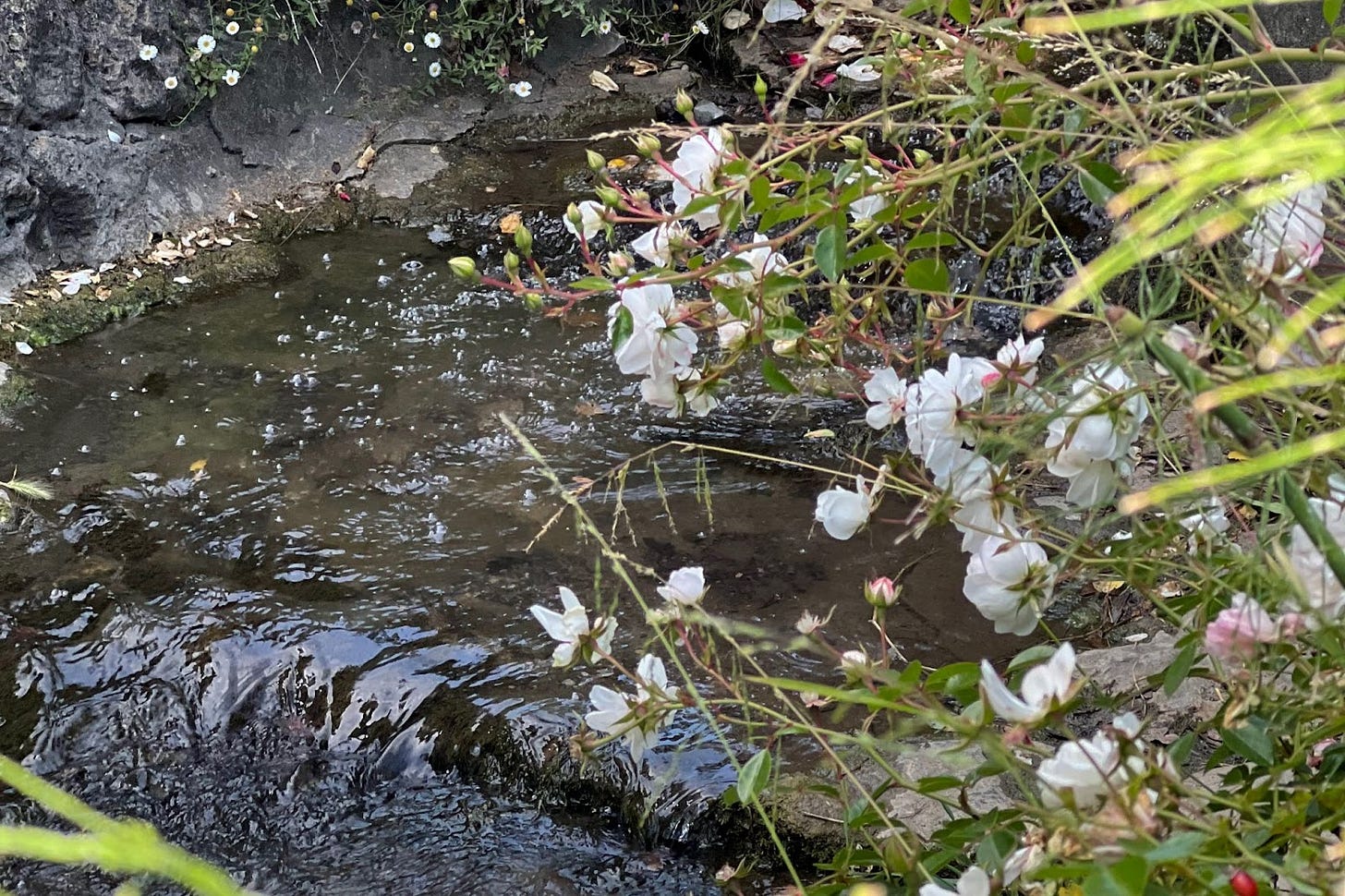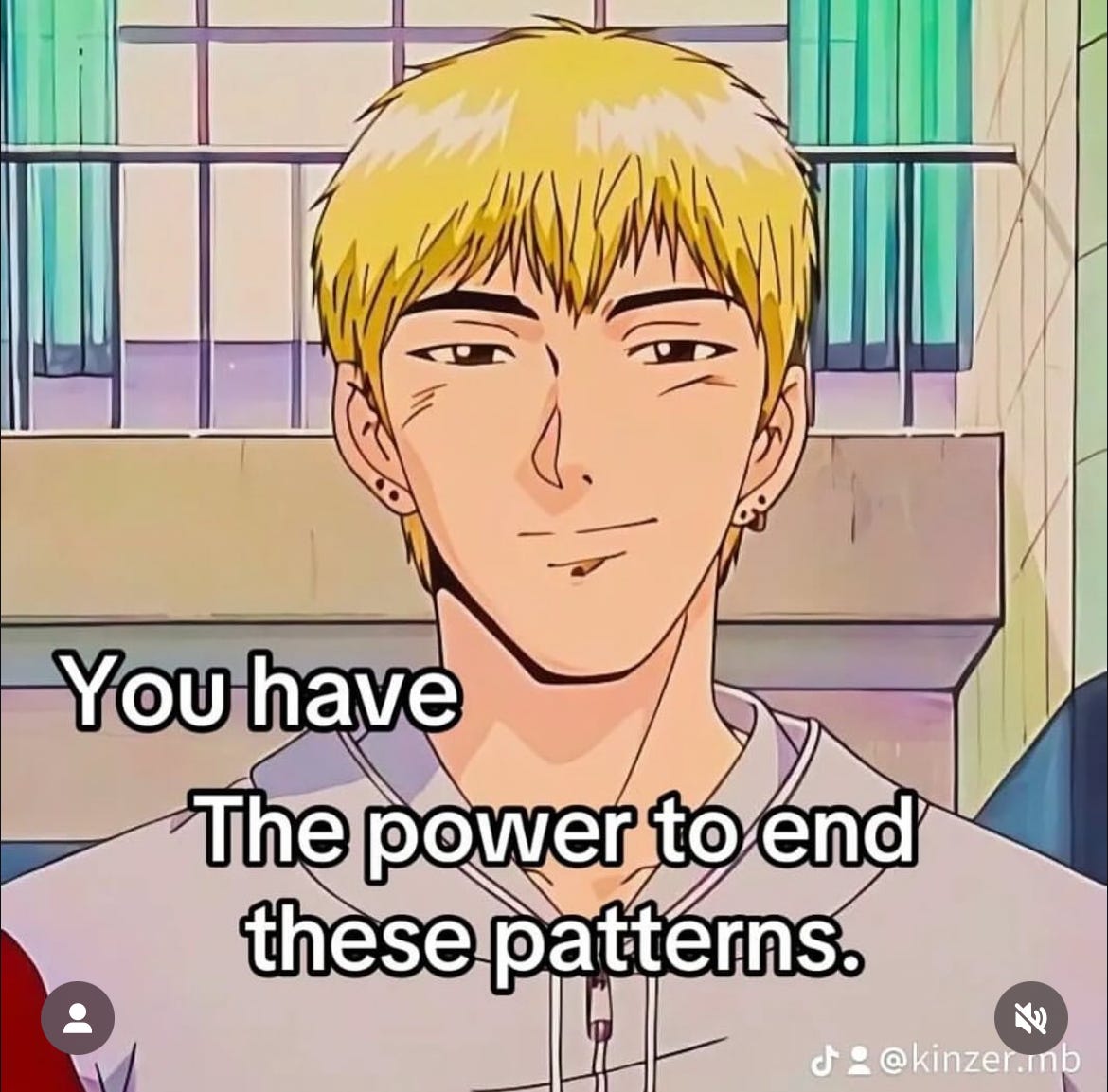In 1984, Audre Lorde spoke to a room of mostly white students in Germany about white people’s tendency to “perform disempowerment” in relation to racism. “I am not interested in your defensiveness,” she said. “I am not interested in your guilt either.”1 In naming these two manifestations of whiteness – defensiveness and guilt – Lorde was discerning the patterns that many of us still struggle to disrupt in ourselves today.
Earlier this year I was invited to facilitate a relationship building/ conflict transformation process between two leaders of a health organization. In preparation I reviewed my notes from Cecilia Lim’s Peer Counseling 4 Social Change (PC4SC) training. When I participated in the training we were invited to reflect on which of our identities are dominant or subordinate in traditional power hierarchies. Then Cecilia listed common patterns on both the dominant & subordinate sides. I adapted this list a bit for the purposes of my facilitation and drew each of the pattern relationships as a spectrum.
As power dynamics shift in relation to different people and contexts, we might show up closer to one end of the spectrum or the other. For example, I know that in work settings my power tends to show up as dominant patterns (Lorde might have referred to it as “my defensiveness”), whereas in family dynamics my power sometimes shows up as subordinate patterns (which Lorde might have referred to as “my guilt”).
Noticing how we “perform disempowerment” and disrupting the patterns takes practice. Recently when I found myself exhibiting some of the common dominant patterns, I:
took a step back from the situation for a day
named the patterns that were playing out (literally telling myself “I am lacking emotion and focusing (very confidently/decisively) on solutions. This has something to do with my whiteness.”)
affirmed the feelings & needs that were hiding underneath these patterns, reminding myself that they were still valid
made a plan with myself for how I might get my needs met so I can take responsibility for my place in the work without projecting these patterns onto anyone else
This process took about 3 days of noticing the patterns, stepping back, reflecting, and refocusing to move forward in love and care. It doesn’t always take that long, and sometimes it takes longer. Occasionally I don’t notice the patterns before I externalize them. I “perform disempowerment” through denial, urgency, or an overly-confident focus on solutions. And then, hopefully, I see the patterns in retrospect and apologize to whoever I harmed.
Though the “disempowerment performance” can be harmful to the people we interact with, it can be quite convenient to us. When white people shy away from our power, we can more easily ignore our history rather than take responsibility for the violence of white supremacy. We can defer to people of color to tell us how to show up in movement rather than proactively organize our peers who run the institutions that perpetuate injustice. We can make a few donations rather than strategically redistribute our wealth to the people whose labor made us rich.
Shying away from our power, paradoxically, makes it possible for white people to maintain our power.
Owning our power in this complex, daunting world is not a one-size-fits-all perfect process and never will be, but I invite you to consider: how might you be performing disempowerment? Which patterns on the power spectrum do you tend to exhibit? How might you hone your practice of noticing and releasing these patterns to prevent harm and nurture a culture of care?
With care,
Alyssa
Resources Share
Here are a few resources that have helped me understand and own my power. I hope they can do the same for you.
Undoing Racism/Community Organizing Workshop: Not a newsletter goes by that I don’t recommend this workshop :) In it, you’ll engage in a power analysis to discern who has power, who doesn’t, and how it’s being used and misused. You’ll also get historical context on how white people’s power has been preserved by the law since the 1600s. And, hopefully, you’ll get a sense of your own power to chart a new future. (2025 workshop dates are not on the website yet, but I have the list so please reach out when you’re ready to sign up!)
Sources of Power: This resource helps me remember that even when I don’t have official or authoritative power, I have other sources of power I can tap into, share, and channel to shape a culture of care.
I came across these Audre Lorde quotes in this fantastic new biography of her written by Alexis Pauline Gumbs






